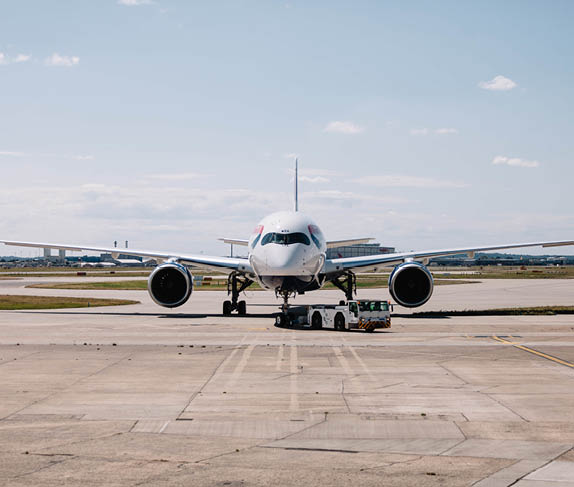The panel discussed the types of threats and the ways to mitigate against this ever growing challenge. With increasing integration of newer technologies and connected systems onboard aircraft, types of threats and how they manifest are evolving fast. From the standpoint of the law enforcement and homeland security apparatus, Disruption in Communications, penetration of systems and the compromising of digital security, are as integral a part of the arsenal of nation states terrorists and criminal organizations as physical weapon systems.
The aviation industry with its primary focus on security has seen a coming together of regulators, law enforcement, industry and associations like IATA, to formulate a more comprehensive approach to mitigate against this growing threat.
From the industrial standpoint Alan Pellegrini as an executive of one of the world leaders in both aerospace and cybersecurity, outlined how, as aircraft become nodes of connectivity, the types of protections that encompass connected systems need to evolve apace.
The secured handling of a Big Data is something airlines are looking at very closely. Maintenance, operations, fleet and flight planning, and passengers themselves generate a huge amount of data which the airline must handle properly, securely and in such a way as to help their business. This data is naturally shared between different nodes and increasingly with aircraft themselves. Therefore the protections that are required need to be developed apace of the use of data.
As cloud based systems develop an evolutive approach to data protection needs to be put in place and Thales, who are at the forefront of developing cloud based services for airlines are looking at this in detail.
Protection of data is a primary concern and airlines need to ensure criminals do not steal information that could hurt them financially or obtain personal passenger information such as payment details and identity. “This is why a player like Thales who is one of the leaders in cybersecurity” states Pellegrini, “is very active in this respect” Thales is involved in the securing of 80% of the world’s financial transactions and therefore is extremely well versed in this area.
When we talk about security, the most important aspect is of course the physical security of aircraft and therefore passengers, there have been some very grandiose and highly publicized claims made by hackers or self-proclaimed security experts of late, the possibility of hackers taking control of aircraft by hacking into connected IFE systems or even avionics. Thales has helped several investigative bodies on such matters including the FBI, and whilst these claims turned out to be untrue, “we naturally take security very seriously and we continue to monitor and evolve our response to any threat.” says Pellegrini
“One thing we need to remember” concluded Pellegrini, “is that there is a whole host of technologies and a number of ways to protect oneself but there is no silver bullet, we must continuously monitor threats as they materialize” Mr Pellegirni also stated that initiatives such as these discussion forums hosted IATA to shed light on this issue are a step in the right direction and sure indication of just how seriously the industry is taking this evolving threat
The International Air Transport Association (IATA) 72nd Annual General Meeting (AGM) unanimously adopted a resolution that denounces terrorism and calls for intensified cooperation among governments as well as with the air transport industry to keep flying secure.
• Commit all possible government resources, particularly intelligence resources, to fighting the use of aviation for terrorist acts;
• Share relevant information to ensure that measures to prevent and respond to terrorist acts are appropriate and effective.
• IATA is working with Airports Council International (ACI) to expand the footprint of the joint Smart Security initiative to streamline airport screening with modern technology and a risk-based approach. This will bring the triple benefit of (1) reduced queues landside, (2) more effective screening, and (3) an improved passenger experience.
• IATA is working with partners across the value chain to implement Fast Travel which will expedite passenger processing with self-service options. Internet check-in and home-printed baggage tags allow the passenger to arrive at the airport ready to travel, thereby reducing passenger dwell time in landside areas of the airport.

